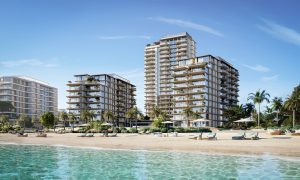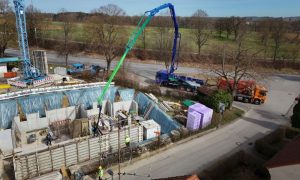VR simulation and training system implemented at Dubai Municipality sewage facility
Trainings conducted on VR simulators increase retention rates by up to 75%, improve work speed by up to 30% and accuracy by up to 96% says NNTC

Software developer and solution provider NNTC along with its partner, CROC, has implemented a virtual reality (VR) simulation and training system at Dubai Municipality’s Sewage Treatment Plants and Drainage Network Department in Jebel Ali.
The nuances and scale of the training system, which includes a detailed virtual replica of the plants using HTC VIVE’s advanced VR technology, make this a first-of-its-kind implementation in the region, and beyond, NNTC said.
According to NNTC’s research, trainings conducted on VR simulators increase retention rates by up to 75%, improve work speed by up to 30% and accuracy by up to 96%. A recent study also found 82% of 600 companies surveyed either met or exceeded the results they expected after VR integration.
“Dubai is increasingly embracing smart-city applications and a digital-first attitude for the efficiency, safety and sustainability these technologies inject into infrastructure. Our customised VR simulators, such as the one we have just built for Dubai Municipality, allow enterprises to train their personnel in a safe, parallel digital environment. Employees can practice equipment operation and maintenance procedures, process flow and interlocks, and can conduct emergency drills. They can master new skills without increased risk, and without affecting the operational process,” said Dmitry Doshaniy, general manager at NNTC.
The implementation for Dubai Municipality comprises a training facility and maintenance and operations training systems, which leverage a digital twin, as well as mathematical models of the technological processes. It also features over 7,000 interactive elements. Trainings are conducted using HTC’s Vive HMD headsets, which allow wearers to navigate and execute simulated tasks across three-dimensional models.
According to Dubai Municipality, the new VR training hub aims to increase employee productivity in treatment plants by up to 7%, in addition to the contribution of specialised training programs supported by VR technology in reducing human errors by 50%.
It results in savings in maintenance costs and operation, at a rate equivalent to 5% of the budget allocated for this. It also contributes in reducing the emergency downtime of equipment and the treatment process by 30% in a way that is reflected in the quantity and quality of treated water, DEWA noted.
Daniel Khayat, head of product at HTC MEA concluded, “VR-based training is a powerful tool — it builds skills, muscle memory, reduces equipment downtime and, above all, means employees can train safely, even when practicing life-saving emergency safety scenarios. HTC VIVE’s high-resolution VR headsets offer an amazing level of photorealism for the ultimate immersive experience, and it’s exciting for us to be a part of Dubai Municipality’s new training system.”





















